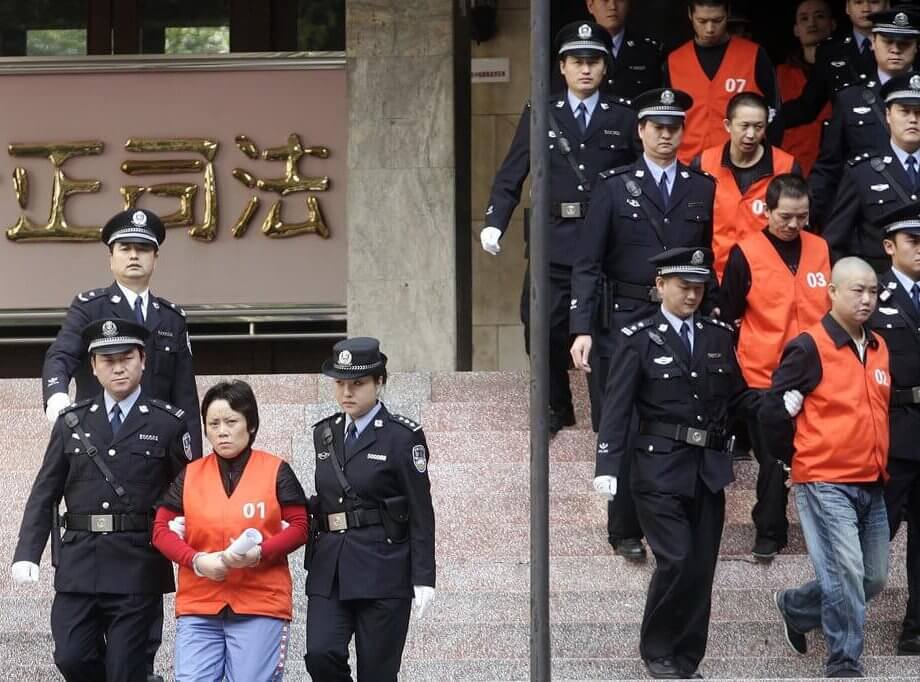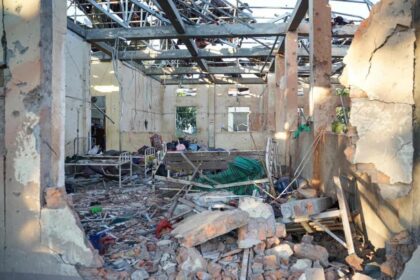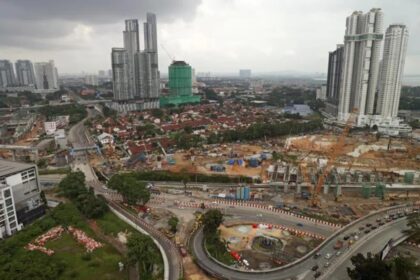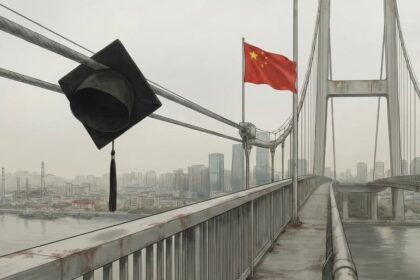China’s Rare Admission: A Turning Point in Addressing Torture and Unlawful Detention?
In a move that has drawn international attention, China’s top prosecutorial authority, the Supreme People’s Procuratorate (SPP), has issued a rare public admission: torture and unlawful detention persist within the country’s justice system. This acknowledgment, accompanied by a pledge to crack down on illegal practices by law enforcement, marks a significant—if cautious—shift in official rhetoric. But does it signal real change for a system long criticized for its opacity, forced confessions, and harsh treatment of dissidents?
- China’s Rare Admission: A Turning Point in Addressing Torture and Unlawful Detention?
- What Prompted the Crackdown? Recent Cases and Public Outcry
- Understanding China’s Detention Systems: RSDL, Shuanggui, and Liuzhi
- Legal Reforms and Their Limits: Why Has Torture Persisted?
- The Human Cost: Lawyers, Activists, and Ordinary Citizens
- International Criticism and China’s Response
- Broader Implications: Anti-Corruption or Political Control?
- In Summary
China’s justice system has faced decades of scrutiny from human rights organizations, the United Nations, and foreign governments. Allegations of torture, arbitrary detention, and the targeting of lawyers and activists have been persistent. The SPP’s June 2024 announcement of a new investigative department to target judicial officers who “infringe on citizens’ rights” through unlawful detention, illegal searches, and torture is being hailed by some as a step toward greater accountability. Yet, the broader context and recent history suggest that deep-rooted challenges remain.
What Prompted the Crackdown? Recent Cases and Public Outcry
While China has often denied allegations of torture—especially those raised by the United Nations and rights groups—several high-profile cases have recently ignited public anger, even within the country’s tightly controlled media environment.
In April 2024, a senior executive at a Beijing-based mobile gaming company died in custody after being detained for over four months in Inner Mongolia. Official reports claim he took his own life, but the circumstances of his detention—under the “Residential Surveillance at a Designated Location” (RSDL) system—have raised serious questions. RSDL allows authorities to hold suspects incommunicado, often without charge, access to lawyers, or contact with family for extended periods.
Other cases have surfaced, including the 2022 death of a suspect allegedly tortured with electric shocks and plastic pipes while under RSDL, and a 2019 incident where police officers were jailed for using starvation and sleep deprivation, leaving a detainee in a vegetative state. These incidents, publicized by the SPP itself, have fueled calls for reform and greater transparency.
Understanding China’s Detention Systems: RSDL, Shuanggui, and Liuzhi
To grasp the scale and persistence of torture in China’s justice system, it is essential to understand the mechanisms that enable it. Over the past decade, several forms of extralegal or quasi-legal detention have been used to isolate, interrogate, and pressure suspects—often outside the reach of judicial oversight.
Residential Surveillance at a Designated Location (RSDL)
Introduced in 2012, RSDL allows police to detain individuals in secret locations for up to six months. While officially justified as a tool for investigating serious crimes, RSDL has been widely used against human rights lawyers, activists, and dissidents. Detainees are often denied access to legal counsel and family, and reports of torture—including sleep deprivation, beatings, and psychological abuse—are common.
Shuanggui: The Party’s Secret Disciplinary System
For decades, the Chinese Communist Party (CCP) operated “shuanggui,” a system allowing the Party’s internal disciplinary body to detain and interrogate Party members suspected of corruption or disloyalty. Shuanggui was notorious for its secrecy, lack of legal safeguards, and frequent use of torture to extract confessions. Human Rights Watch and other organizations have documented deaths and severe abuse under this system.
Liuzhi: Institutionalizing Secret Detention
In 2018, shuanggui was replaced by “liuzhi,” or “retention in custody,” under the new National Supervision Law. Liuzhi expanded the scope of secret detention beyond Party members to include anyone exercising “public power”—from civil servants to business executives. Detainees can be held for up to six months without access to lawyers or family, and the system operates outside the regular judicial process. According to Safeguard Defenders, 26,000 people were placed in liuzhi in 2023 alone—an average of 71 people per day.
Facilities built for liuzhi are designed for maximum control and surveillance, with padded cells, round-the-clock guards, and strict rules to prevent suicide. Yet, reports of torture, forced confessions, and psychological abuse remain widespread. A criminal defense lawyer told CNN that most clients “would succumb to the pressure and agony,” with only a tiny minority able to resist.
Legal Reforms and Their Limits: Why Has Torture Persisted?
China has made several legal reforms aimed at curbing torture and wrongful convictions. The 2012 amendment to the Criminal Procedure Law prohibits the use of confessions obtained by torture as evidence. The Supreme People’s Court has called for criminal justice reforms, and exclusionary rules have been introduced to deter police misconduct.
However, legal analysts argue that these reforms have had limited impact. As China Law Translate explains, the exclusionary rules lack the “fruit of the poisonous tree” doctrine found in other legal systems, meaning that even if a coerced confession is excluded, evidence derived from it may still be used. Defense lawyers often face barriers in accessing critical evidence, such as medical inspection records or interrogation recordings, and investigators rarely testify in court to answer allegations of misconduct.
Moreover, the overwhelming reliance on confessions in criminal cases—combined with a conviction rate exceeding 99%—creates strong incentives for law enforcement to extract admissions of guilt by any means necessary. The United Nations Committee Against Torture has repeatedly criticized China for its “deeply entrenched” use of torture and ill-treatment, noting that reforms have not been fully implemented or enforced.
The Human Cost: Lawyers, Activists, and Ordinary Citizens
The crackdown on torture and unlawful detention is not just a matter of legal procedure—it has profound human consequences. Since 2015, China has waged a sweeping campaign against human rights lawyers and activists, known as the “709 crackdown.” Hundreds have been detained, disbarred, or imprisoned, often on charges of “subversion of state power.”
Many of those targeted have reported torture and abuse in custody. Ding Jiaxi, a prominent rights lawyer, was subjected to prolonged sleep deprivation, forced to sit on a “tiger bench” for days, and bombarded with propaganda at maximum volume. His wife, Sophie Luo, described the ordeal and the toll it took on their family:
Sophie Luo, wife of Ding Jiaxi, recounts her husband’s resolve: “You have dedicated your life to China’s democracy and freedom, but this government doesn’t appreciate it at all… In return for your patriotism, they torture you and lock you up. Can you consider leaving China, and choosing another life?”
Other high-profile cases include the detention and alleged torture of writer Yang Hengjun and citizen journalist Zhang Zhan. Yang, an Australian citizen, has been denied adequate food and medical care, while Zhang has endured repeated hunger strikes and force-feeding, which human rights groups classify as torture.
Lawyers who defend dissidents or expose abuses often face harassment, disbarment, and even imprisonment themselves. The chilling effect on the legal profession and civil society is profound, as many are deterred from taking on sensitive cases or speaking out against injustice.
International Criticism and China’s Response
China’s record on torture and arbitrary detention has been the subject of repeated condemnation by international bodies. The United Nations Committee Against Torture, in its most recent review, expressed “serious concern over consistent reports indicating that the practice of torture and ill-treatment is still deeply entrenched in the criminal justice system.” The committee also called for the closure of secret jails and an end to the crackdown on lawyers and activists.
Despite these criticisms, Chinese officials have consistently defended the country’s legal system. At a 2024 press briefing, Foreign Ministry spokesperson Hua Chunying stated, “In recent years China has been promoting the rule of law and has made great efforts in all regards, including on opposing torture.” However, the lack of transparency, independent oversight, and accountability for abuses continues to undermine such claims.
International pressure has occasionally led to the release of high-profile detainees, but systemic change has been elusive. Human rights advocates argue that foreign governments should be more forceful in demanding accountability and linking diplomatic or economic engagement to improvements in human rights.
Broader Implications: Anti-Corruption or Political Control?
President Xi Jinping’s anti-corruption campaign has been a defining feature of his rule, resulting in the detention and punishment of hundreds of thousands of officials. While the campaign is officially framed as a drive to clean up the Party and government, critics argue that it also serves to eliminate political rivals and consolidate power.
The expansion of liuzhi and other detention systems to cover a broader swath of society—including business leaders, educators, and hospital administrators—reflects the Party’s determination to exert control over all aspects of public life. The lack of judicial oversight and the use of secret detention raise concerns about the potential for abuse, extortion, and the suppression of dissent.
Legal scholars warn that the institutionalization of extralegal detention, even under the guise of “rule of law,” risks further eroding public trust in the justice system and undermining the rights of citizens. As one Chinese legal expert told CNN, “In the past, it was extra-legal. Now, some critics call it ‘legally illegal.’”
In Summary
- China’s Supreme People’s Procuratorate has publicly admitted the existence of torture and unlawful detention in the justice system, pledging a crackdown on abuses.
- Recent high-profile cases, including deaths and severe mistreatment in custody, have fueled public outcry and calls for reform.
- Secretive detention systems such as RSDL, shuanggui, and liuzhi enable prolonged incommunicado detention, often without legal safeguards or oversight.
- Legal reforms have been introduced but are hampered by loopholes, lack of enforcement, and barriers to defense lawyers.
- Human rights lawyers, activists, and ordinary citizens continue to face torture, harassment, and arbitrary detention, with a chilling effect on civil society.
- International bodies, including the United Nations, have condemned China’s record, but systemic change remains limited.
- The anti-corruption campaign and expansion of secret detention reflect both efforts to address graft and to consolidate political control.
- Without greater transparency, independent oversight, and accountability, the prospects for ending torture and unlawful detention in China remain uncertain.












